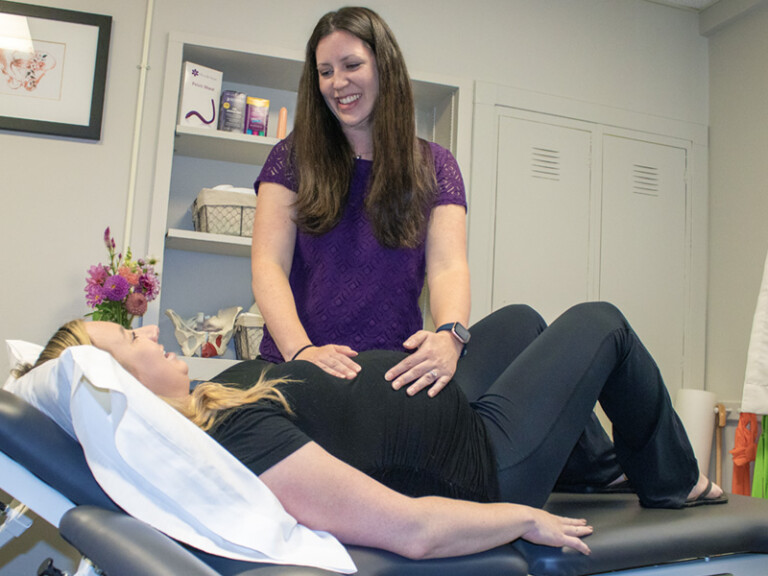
National Women and Girls HIV/AIDS Awareness Day
I’m a nurse practitioner for Infectious Disease and Travel Health of Meadville. I treat many kinds of infections in the hospital, wound clinic, and in the infectious disease and travel health office. One of the many things I treat in the outpatient clinic is HIV/AIDS.
Many people don’t realize that HIV infections are now completely treatable, and with the proper medications, patients can live a normal, healthy life. In recent years, medications have developed the capability to make the HIV virus undetectable in the body. This can be a very scary diagnosis, so I am glad to be able to be a resource to provide support and treatment to anyone dealing with this.
HIV can be spread a few different ways. Most commonly, it can be sexually transmitted or it can be transmitted through coming in contact with the blood of another person who has HIV (this includes coming in contact with blood through sharing needles). The first medication for treatment of HIV/AIDS was approved by the FDA in 1987, but ongoing efforts have made many advances in medications and now there are different options available. There are also medications available to help try to prevent HIV infection if someone has had an intimate partner who is HIV positive, which is known as as HIV PrEP – Pre Exposure Prophylaxis. I provide treatment and counseling for this as well.
Our community is also making efforts to slow/prevent the spread of HIV and other transmittable diseases, one being the implementation of harm reduction vending machines (HRVM). These machines typically contain items such as sterile injection equipment, sharps containers, Naloxone, condoms, first aid kits, and pregnancy tests. HRVMs have been associated with decreased syringe sharing as well as deaths from drug overdoses. These types of resources are important so that people can have access to items to protect themselves if they are not ready to make the step towards obtaining further care, or if they are in a position that prevents them from seeking care.
It is very important to have regular screenings for HIV, especially if an individual is in a situation that makes them high risk for contracting HIV. “High risk” females would be considered females who have intercourse with multiple partners, females who have intercourse with one or more partners who are at risk for HIV infection, females who have intercourse with bisexual males, women who have intercourse with partners who are from an area with high HIV prevalence, and individuals who use IV drugs. The Centers for Disease Control and Prevention designates March 10 as National Women and Girls HIV/AIDS Awareness Day (NWGHAAD) to raise awareness about the impact of HIV on women and show support for women and girls with HIV. Awareness and education are important because even with so many medical advances in treatment, a lot of people, particularly girls and women, are missing out on the benefits. On a national level, for instance, women account for 18% of HIV diagnoses yet only represent 8% of those who are prescribed HIV PrEP.
Many people simply do not know HIV PrEP is an option, and some people may not know where to seek HIV PrEP treatment. If someone would like to be tested for HIV, or would like HIV PrEP treatment, they can start by discussing this with their primary care provider. If they do not have a primary care provider, or are uncomfortable discussing this with them, OB/GYN is another option. Other options include family planning clinics that are available in many areas, as well as Planned Parenthood clinics. Infectious disease clinics provide treatment for HIV and also for HIV PrEP, so if someone is seeking treatment or counseling, they can call their local infectious disease office to ask about how to get scheduled.
HIV is treatable with lifelong medication regimens, but it is also preventable. It is important to learn how to protect yourself from HIV. It is also extremely important to be tested if you are at risk for contracting HIV, because if you are HIV positive, the sooner you start treatment, the more effective that treatment is.
According to the Center for Disease Control and Prevention, the number of women infected with HIV has decreased from 2017 to 2021, but the disease continues to affect a disproportionate number of black and transgender women. Read their communication on 2024’s NWGHAAD here.
Courtney McGovern, CRNP has previously worked as a nurse in areas like surgery, pediatrics, and neonatal intensive care. She worked as a hospitalist CRNP at Meadville Medical Center before joining Infectious Disease and Travel Health of Meadville, with Dr. Christian Rosero located in MMC’s Kennedy Street Facility.


